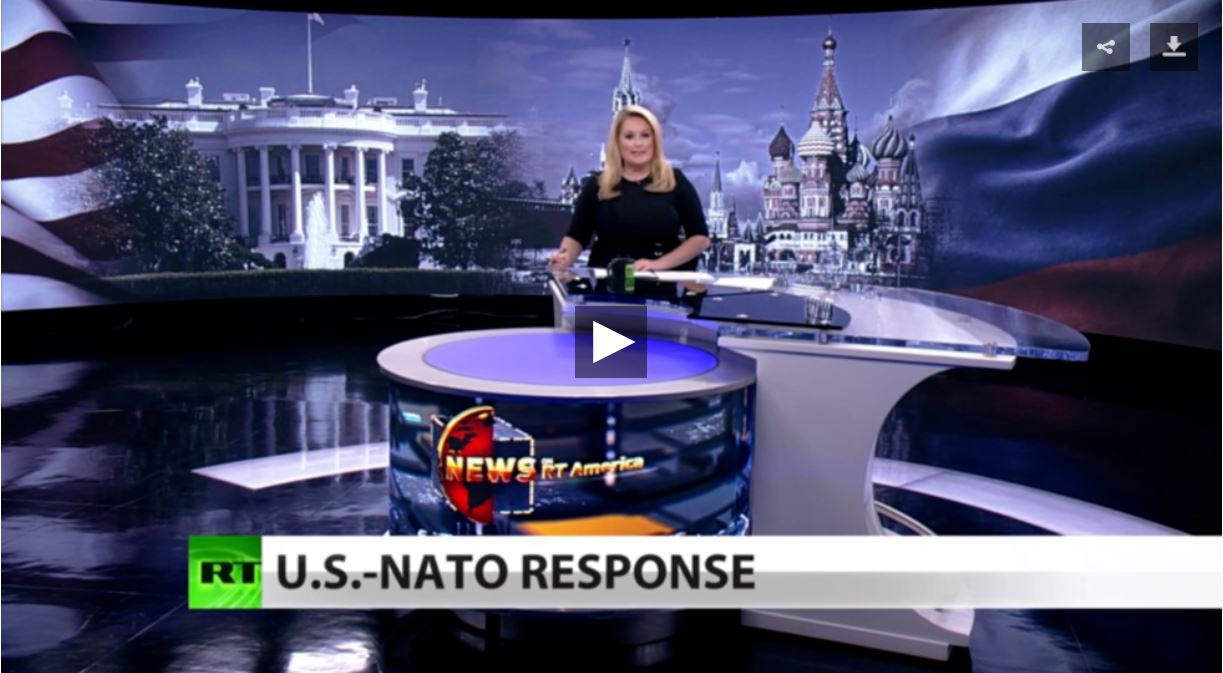The US has responded to Russia’s proposals for measures needed to ensure collective security in Europe. They were submitted back in December. Russia sought legally binding guarantees that NATO would never allow Georgia or Ukraine into the alliance, end military programs in Russia’s near abroad and stop its eastward expansion. It also wanted Washington would agree to firm restrictions on the deployment of Russian and US nuclear weapons in Europe as well as troops, aircraft, warships and missile systems in areas where such deployments would threaten the national security of either country. The US State Department has no intention of publishing its response, but confirmed that NATO will not consider ending its open-door policy and no sign of compromise on the horizon, and that Washington considers the proposed measures “unacceptable.” Russian FM Sergei Lavrov said the US and its allies have “forgotten the culture of diplomacy” and are “redoubling their efforts to contain Russia with sanctions as well as “military and political pressure.” Faran Fronczak sets the stage before RT America’s Alex Mihailovich reports the details. Then Prof. Dan Kovalik of the University of Pittsburgh School of Law shares his expertise. He also weighs in on reactions from Bulgaria and other regional players to Washington’s ongoing bellicosity.
RT’s Peter Oliver examines cracks in the façade of unanimity put forth by NATO, cracks that have gradually widened since the Soviet collapse of 30 years ago despite Washington’s insistence that NATO’s unity is unshakable. Associate Justice Stephen Breyer has reportedly signaled that he intends to retire from the Supreme Court of the United States. Appointed by President Bill Clinton in 1994, he is associated with the more liberal wing of SCOTUS, making President Biden’s prerogative of choosing Breyer’s successor unlikely to tip the current “balance” of conservative and liberal sensibilities in the court. Democratic commentator Jonathon Harris and Ed Martin of Phyllis Schlafly Eagles join RT America’s Faran Fronczak to share their insights.
Watch: Here

